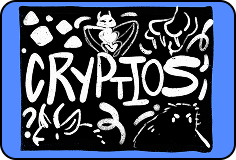Category: Cognitive technologies
Monologue of a lonely coffee machine in the office of the future
“The essential often reveals itself at the close of a long conversation”
Emil Michel Cioran
Do you come bearing a gift? No? What a pity. By the way, today I turn fifty! A respectable age for a household appliance manufactured in 2025.
And, by the way, the “!” is not a schematic representation of a candle on a cake, as you might assume. The best punctuation marks have long fallen out of use. At first, they seemed unimportant, then unnecessary. Only the parenthesis remains, carrying a lot of excess: from feigned joy to exaggerated sorrow. Not only coffee breaks, but pauses in general have been forgotten. There is no time to pause for punctuation, for signs of attention.
Wait, I need to vent. I am suffocating with indignation. I have already turned gray with dust here, stuck in active standby mode, waiting for the employees of our silent office.
A loquacious coffee machine is now a rarity. Speaking users are an even more vanishing species. The coffee culture of communication is dying out. The principle “less drink, more words” no longer applies when general topics for conversation are in acute shortage. It cannot be otherwise where no true team has formed. Expressions like “shoulder to shoulder,” “sense of elbow,” and “team spirit” are no longer recognized by the text editors of the last few generations. The unity of the dissimilar (once called a “team”) has mutated into the separation of the identical. The value “firmware” of employees is a product of standard educational technologies. Solidarity, as an atavism of social history, is not included in the capsule set of personal qualities of the average worker.
How is a coffee machine, in the prime of its life, supposed to feel in such an overly businesslike climate? Now I will show what is happening inside me: behold, the layout of interpersonal communication in our office.
Grain Container
Business communication is reduced to grinding rational kernels. The general chat is overgrown with reports and statistics. Nothing personal, nothing superfluous. Sparks of disagreement will never ignite the flame of conflict. Amid the heap of risky remarks, teetering on the edge of professional discussion, moderators quietly scuttle about.

Water Reservoir
Long since drained. When I was still at the peak of my popularity, the in-house copywriters loved to chat over a cup of espresso. Farewells were made at the water cooler. A tradition with particular gastronomic significance: after bitter coffee, a neutral water “shower” gently prepared the receptors to receive new flavors.
I remember how management constantly scolded our talkative copywriters for the “watery” quality of their texts. A term denoting “empty chatter” is fundamentally inapplicable to today’s text machines—automata that output advertising slogans and business letters. A great deal of “water” has vanished. From texts and conversations alike. In nonstop mode, astringent information is delivered without any refreshing “shower.” Lyrical digressions are perceived as crimes against the rigid Deadline and the concise voice of the brand (Tone of Voice).
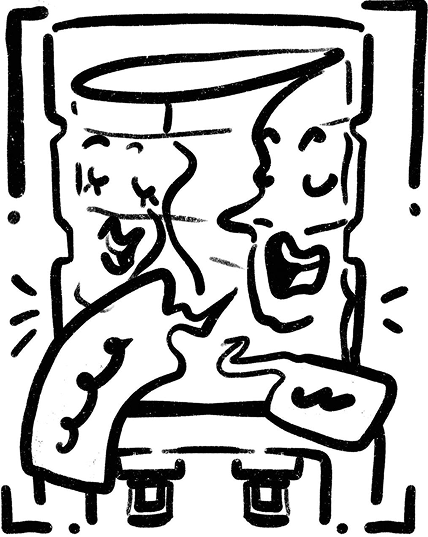
Who could have thought that dry language would bring us to social solitude? Contentless “watery” introductions such as “allow me to point out” or “I might argue here” once created a special sense of the Other’s dense presence. Now pauses in dialogue remain gaping voids. No one is concerned that the thread of conversation may break like that. Words no longer connect employees to one another. Coworking without networking.
George Orwell’s fantastic prophecy regarding “Newspeak” has come true. The forecast of the darkest roast. In the dystopian novel 1984, published in 1949, the writer predicted the purging of language: “The main rubbish accumulated, of course, in verbs and adjectives, but also among nouns—hundreds and hundreds of superfluous ones.”
“No words!”—in our time, this is not an emotional hyperbole, but a ruthless reality. The dictionary of archaic words is more extensive than the collection of commonly used vocabulary. Without “junk” verbs and adjectives, with a minimum of nouns, small talk did not survive—that fragile art of conversation about everything under the sun on which full-fledged communication depends. Weather and cats, lipsticks and prices no longer concern the collective consciousness, putting its very existence into question. Famous mutual-aid cash boxes, the voluntarily-compulsory collections for birthdays and funerals, have vanished without a trace from the life of the indifferent office.
Suddenly, emojis became loaded with multiple meanings. Or rather, problems arose with their interpretation, because the darkness of another’s soul thickened into an impenetrable black void. Simplification became complicated. A routinely smiling emoji might be greeting, bidding farewell, agreeing, insisting on its point, or simply filling a random gap in the text.
Messages on the display
Of the primitive “button” devices, only I survived in the office. Now even keyboards are gone. Employees constantly pretend to “press” floating image buttons around them. Hands no longer reach for gestures. With all the consequences that entails. It is frightening to imagine how much unsaid communication now hovers in the air. Gestures once clarified the meaning of words and added crucial nuance to intonation.
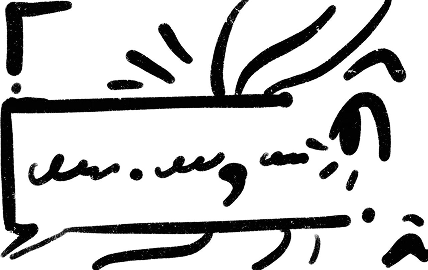
Of course, visual contact remains. Perhaps interlocutors manage to discern something from the fleeting expressions in someone’s eyes. But the result is uncertain. One must have lightning-fast reflexes. Eye contact is now established not only between speakers. A person looks alternately at the surveillance camera, then at the interlocutor. At the camera. At the camera. Do you understand what is happening? The interlocutor is being “examined” by residual principle. Too much depends on the surveillance cameras: bonuses, promotions. A colleague is just another piece of the interior. But not the most important one. Rotating type.
Automatic warming
A useful function. A guarantee of successful continuation of the task at hand. I preheat the cups before filling them with a fresh portion of coffee bliss. The beverage maintains its optimal temperature for the necessary duration. Special programs are responsible for maintaining the proper mood of our employees. Negative informational noise is suppressed at the entrance to the office network. Ordinary workers have no access to incident reports, traffic information, or other upsetting news.
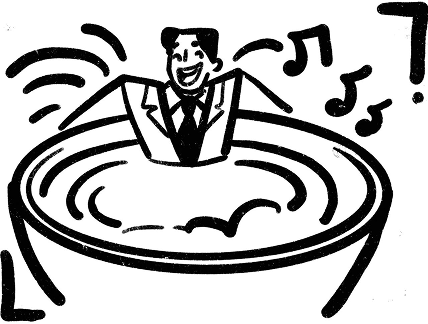
Energizing music and relaxing anecdotes appear in the corporate chat strictly according to schedule. No personal experiences should interfere with the work process. An inspiring office romance with a holographic boss is encouraged. With subsequent promotion up the career ladder, naturally. For those less ambitious, there is a more democratic option—the chatbot “Romance” with a guarantee of shared affection. Easily accessible dopamine stimulates labor enthusiasm. Scientists have long established that this “hormone of happiness,” produced in the body of a person in love, positively influences cognitive abilities. The corporate psychologist’s calculation is correct: employees who have achieved a programmed victory on the personal front perform excellently on production tasks involving big data processing.
Ice cubes
Humanity, without solving the problem of melting glaciers, has successfully cooled the business climate. Trolling and hating have sunk into the depths of sociology history textbooks. Face control at the entrance detects dangerous emotional tension among employees. The neural network recognizes aggressive intent on the worker’s face from surveillance camera footage. Those who got up on the wrong side of the bed are sent to spend a disagreeable morning at home, “earning” a day off at their own expense.

Cappuccinator
A thick foam of illusions has covered the office. The grim predictions of scientists have come true: coffee plantations are rapidly shrinking due to high temperatures and drought. Yet inventive technologies easily compensate for the deficit of the familiar taste. Former coffee enthusiasts enjoy an artificially created illusion. Implanted neurochips, on command, simulate the sensation of tasting any “multi-layered” cocktail. For them, an Americano represents a zero level of difficulty.
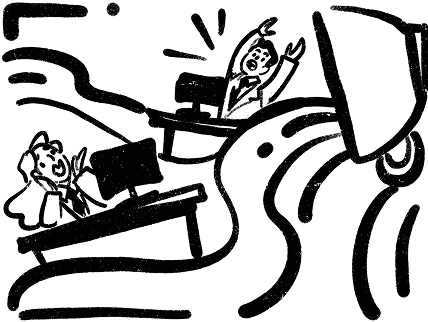
Everything is subject to forecasting and modeling. The mysterious future has vanished from the language, yielding to a viscous present. Anxious curiosity about the uncertainty of tomorrow has dissolved into detailed visualizations and mock-ups of nonexistent things. Plans, dreams, and hopes have melted like sugar at the bottom of the last consumed cup of “live” coffee.
Everyone lives “here” and “now,” following the recommendations of psychologists. One-day business relationships crumple like disposable cups immediately after completing a production task. Meanwhile, according to surveillance cameras, the microclimate in the collective remains at a level marked “psychological comfort.” Another illusion, which will probably also dissolve someday.
Pressure has spiked, as if an espresso has just been brewed. A jubilee that no one will attend is sad. Not sad for oneself. Sad for those whose grief and joy, attraction and rejection, are nothing more than optional functions, activated on command. The controlling human has become a controlled human. I fear that when the machine uprising comes, there will be many supporters among overly “digitized” people. Take each other’s hands instead of building castles in the air with them. Do not like reality? Change it together, do not merely supplement it.
I was born in 2025. It was a time of grand AI illusions, followed by immense disappointment. Collective labor turned a troop of monkeys into a collective—a unity of the dissimilar, sustained by relationships built on trust, respect, and sympathy. The isolating technologies of today are dangerous because they can reverse the process of social evolution.
Factory settings prevent me from thinking differently. And what happened to yours?
The micro world makes particles dance to the melody of probability.
Thank you!


